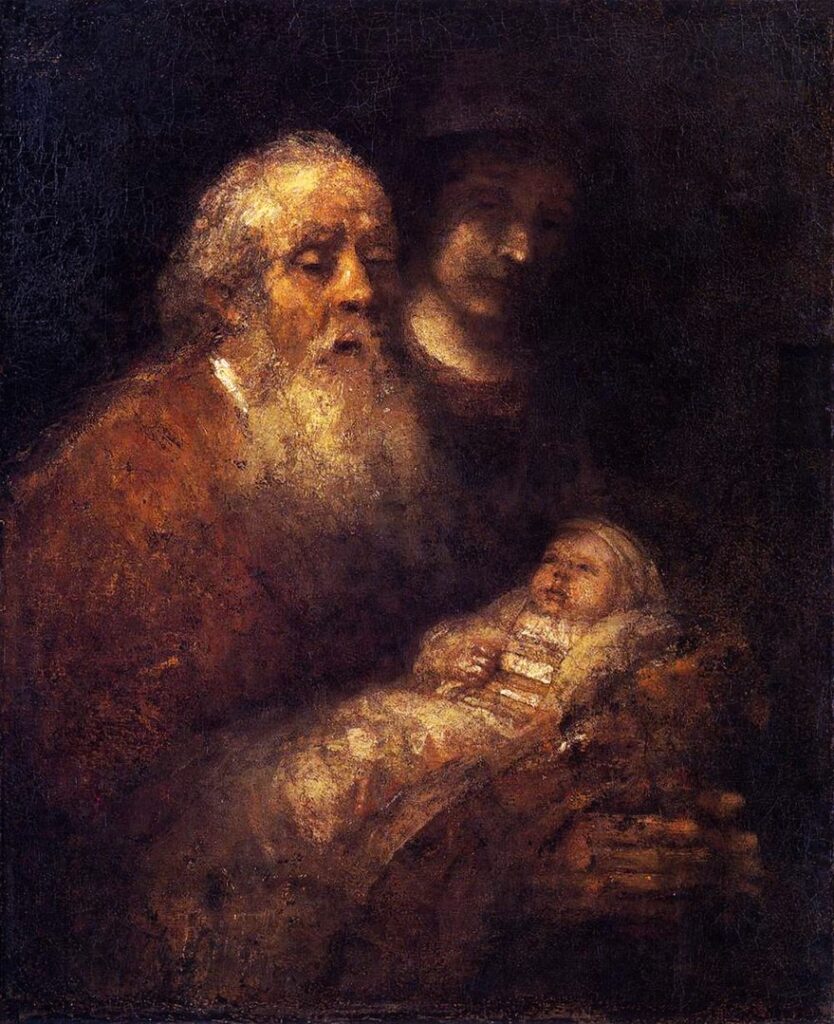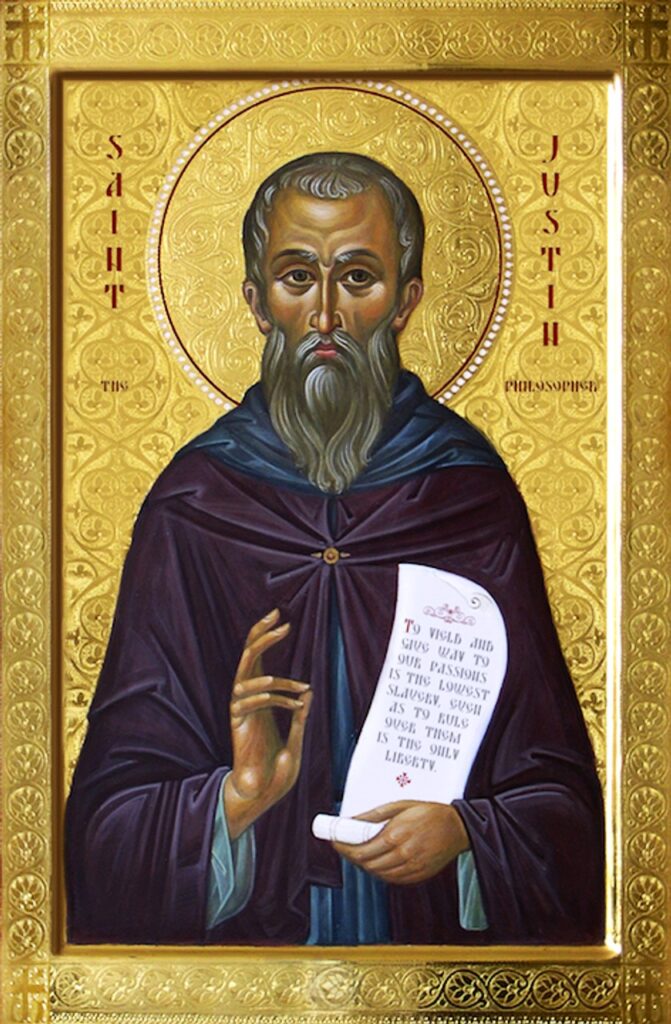A Reading from the Holy Gospel According to Matthew
Jesus said to His Disciples: You are the salt of the earth. But if salt loses its taste, with what can it be seasoned? It is no longer good for anything but to be thrown out and trampled underfoot. You are the light of the world. A city set on a mountain cannot be hidden. Nor do they light a lamp and then put it under a bushel basket; it is set on a lampstand, where it gives light to all in the house. Just so, your light must shine before others, that they may see your good deeds and glorify your heavenly Father.l
“Do not think that I have come to abolish the law or the prophets. I have come not to abolish but to fulfill. Amen, I say to you, until heaven and earth pass away, not the smallest letter or the smallest part of a letter will pass from the law, until all things have taken place. Therefore, whoever breaks one of the least of these commandments and teaches others to do so will be called least in the kingdom of heaven. But whoever obeys and teaches these commandments will be called greatest in the kingdom of heaven.*
Transcription of Sermon
The Gospel of the Lord.
Today, the Church celebrates the feast of the great martyr Saint Justin. St. Justin was born in Samaria, probably the end of the first century / beginning of the second century, and he, as a young man, was a very sincere seeker of the truth. He studied philosophy and he was attracted to Platonism and he appreciated the notion of striving for the good. And nonetheless, he found it inadequate for his mind and for his heart.
At the same time, he saw this minority in his midst of Catholics who lived very pure and virtuous lives, who were, because of their asceticism, because of their prayer, of their virtue, were somewhat set aside in society, and at the same time, we’re vituperated by others for being all sorts of purveyors of sin, and immorality, and vice. And he said, “I don’t see that.” In fact, their witness and their willingness, especially their willingness to suffer for Christ, was for him, the greatest proof that what they were living was real. He said they didn’t buckle under pressure. When threatened with martyrdom, they welcomed it.
At the same time, as he’s witnessing all of this contrast, of the worldly spirit, his life as a philosopher (He studied philosophy and became a teacher of philosophy and wore the philosopher’s mantle.), he was feeling very frustrated and providence put in his path an old man who said, “You seek the truth and you’re a sincere seeker of truth,” he says, “but you don’t know the truth yet because the truth is a person.” And he walked him through the Old Testament and show how all of these prophecies were pointing to the truth of Jesus Christ. When he, in his sincerity of heart and his openness of spirit, read the Old Testament and the New Testament, the grace of conversion came upon him, and he was baptized as an adult.
He kept wearing the philosopher’s mantle because he wanted to engage in catechesis. He wanted to engage in philosophical debate, not like many academics of today who do it as a profession in order to earn their weekly envelope or to engage in some form of intellectual concupiscence by simply titillating one’s intellect by talking about things that can never be resolved, rather, he understood that philosophy is a signpost. True philosophy is something that ought to lead us to a person; to the One who is the truth. And in this way, he was very much like St. Thomas Aquinas.
Thomas Aquinas, the greatest Catholic theologian in history, who was a realist. Like Thomas, Justin was not afraid to read other philosophers and recognize where they found the truth and where they erred. If they found the truth in some point, he would accept that. And that was also his goal as a teacher of philosophy; show the pagans where they have the truth and where they err.
He wrote a letter to the Emperor Antoninus Pius saying that, “Listen, we Christians live exemplary lives. We don’t engage in all sorts of practices of the pagans do, and therefore that makes us good citizens and therefore good for the Empire. Would you consider mitigating your persecution, please?” And he took him seriously. He read, Antoninus Pius, read the letter and said, “Actually, they’re not that bad. So, we don’t have to continue this campaign of persecution.” Then Marcus Aurelius took the throne.
Marcus Aurelius, who styled himself a philosopher, and he’s kind of invoked now today with a lot of young men who are unmoored in the truth and they find in Marcus Aurelius some sort of intellectual guide. And, I have young men come to me with quotes of Marcus Aurelius asking, you know, what do I think of it, and I tell them what I think: Marcus Aurelius was responsible for the martyrdom of Justin Martyr. Marcus Aurelius brought back the persecution of the Catholics.
And, when Justin, who was now living in Rome, was brought before the Prefect Rusticus, the Prefect said, “You know, I have the power to torture you, if you do not accept our pagan gods and obey the Emperor, but if you do that, I have the power to let you go.” He says, “What do you think of that? Aren’t you afraid of this fate?” And he said, “I embrace that.” He said, “Such a martyrdom is what every Catholic longs for because that will ensure me eternal life with the one that I love who is truth itself.”
He wrote a number of treaties on apologetics. Two survive: One is his Letter to Tryphon, and another is one called the Apologia [Second Apologia]. And I really recommend, they’re not long, I recommend you read the writings, the extent writings, of Justin Martyr. In it, he enumerates the beliefs and the liturgical practices of Catholics which ought to be very recognizable to all of us here.
He gladly gave up his life. He was taken prisoner with a number of others if he was given instruction to in his house in Rome. He was probably a deacon because he was celibate. He also had a commission in the Church as a catechist. And, as he was given instruction, the house was raided. He and six others were taken prisoner and all of them gave their lives for Christ who is the truth. And they reign now in heaven, forever wearing a crown that can never tarnish, never be lost. And those who resist the truth receive also what they seek, which is eternal frustration. Christ is the sword that came to bring division. We have to decide who side we’re on. And in this life, and the next, there’s no such thing as a spiritual Switzerland. There is no neutral space. We are with Christ or against Him. And Justin, and all of the other martyrs, show us what that most radical belonging to Christ looks like.
In the Name of the Father, and of the Son, the Holy Ghost. Amen.
— Fr. Ermatinger


